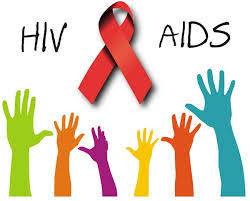**Ghana AIDS Commission Worried Over Increasing HIV Cases in Ashanti Region**
The Ghana AIDS Commission has expressed significant concern over the rising number of HIV cases in the Ashanti Region. Recent statistics indicate a worrying upward trend in infections, prompting the Commission and health authorities to intensify efforts to curb the spread of the disease. The situation has reignited conversations around awareness, stigma, prevention, and access to treatment in one of Ghana’s most populous regions.
### **Rising Statistics and Concerns**
According to the Commission’s latest report, the Ashanti Region has recorded a marked increase in new HIV cases, making it one of the regions with the highest prevalence in the country. While national efforts have resulted in some progress in other areas, the numbers from Ashanti are a cause for alarm. The rise in cases is attributed to several factors, including low testing rates, stigma, risky sexual behaviors, and misinformation about HIV and AIDS.
Dr. Kyeremeh Atuahene, the Director-General of the Ghana AIDS Commission, described the development as “troubling†and called for urgent action. “The Ashanti Region is critical in the fight against HIV/AIDS due to its population size and economic significance. An increase in cases in this region threatens to undermine national progress,†he stated.
### **Key Drivers of the Increase**
The surge in HIV infections in the Ashanti Region can be traced to several interconnected factors.
1. **Low Awareness and Education:**
Despite years of public health campaigns, many residents in the region still lack accurate knowledge about HIV transmission and prevention. Misconceptions, such as associating the disease exclusively with certain groups, persist and contribute to risky behaviors.
2. **Stigma and Discrimination:**
Stigma remains a major barrier to tackling HIV in the region. Many individuals fear discrimination and social ostracism if they test positive, leading them to avoid testing or seeking treatment. This reluctance exacerbates the spread of the virus.
3. **Risky Sexual Practices:**
Unprotected sex, multiple sexual partners, and transactional sex are significant contributors to the rise in cases. The youth, in particular, have been identified as a vulnerable group due to their engagement in risky behaviors and lack of consistent use of condoms.
4. **Limited Access to Testing and Treatment:**
While testing centers and antiretroviral therapy (ART) programs exist in the region, accessibility issues such as cost, distance, and lack of awareness prevent many from utilizing these services.
### **Health Authorities’ Response**
In response to the alarming rise in cases, the Ghana AIDS Commission and other stakeholders are ramping up efforts to control the spread. Dr. Atuahene outlined a multi-faceted approach that includes:
- **Enhanced Education Campaigns:**
The Commission plans to intensify education campaigns to dispel myths, promote prevention methods, and encourage testing. These campaigns will target schools, churches, workplaces, and community gatherings to ensure widespread outreach.
- **Scaling Up Testing:**
Mobile testing units and community-based testing programs are being expanded to encourage more people to know their status. This strategy aims to bring services closer to individuals who may not access traditional healthcare facilities.
- **Improved Access to Treatment:**
Efforts are being made to ensure that antiretroviral drugs are available and affordable. The Commission is working with local health facilities to reduce bottlenecks in accessing treatment.
- **Youth-Focused Interventions:**
With young people at higher risk, specific interventions are being designed to address their needs. These include sex education programs, condom distribution campaigns, and peer-led initiatives to promote responsible behavior.
### **Community Engagement and Stakeholder Support**
The fight against HIV/AIDS requires the collective effort of government agencies, non-governmental organizations (NGOs), community leaders, and religious groups. The Ghana AIDS Commission has called on all stakeholders to play an active role in addressing the rising cases.
Traditional and religious leaders in the Ashanti Region are being engaged to help break the stigma surrounding HIV/AIDS. By leveraging their influence, these leaders can encourage open discussions, dispel myths, and promote testing and treatment.
Additionally, NGOs such as the Ghana Health Service and UNAIDS are partnering with the Commission to provide funding, technical support, and training for healthcare providers in the region.
### **The Role of Technology in the Fight Against HIV**
Technology is also playing a vital role in the fight against HIV in the Ashanti Region. Mobile health applications and social media platforms are being used to reach a wider audience with messages about prevention, testing, and treatment. Virtual counseling services are being introduced to provide discreet support for individuals hesitant to seek help in person.
### **Call to Action**
As the cases continue to rise, the Ghana AIDS Commission is urging every individual to take personal responsibility in the fight against HIV/AIDS. This includes practicing safe sex, getting tested regularly, and supporting those living with the disease.
“Every Ghanaian has a role to play,†Dr. Atuahene emphasized. “We need to create a supportive environment where people feel safe to get tested and access treatment without fear of stigma. Together, we can turn the tide and reduce infections in the Ashanti Region.â€
### **The Path Forward**
The rise in HIV cases in the Ashanti Region is a wake-up call for all stakeholders to intensify their efforts. While the challenges are significant, the Ghana AIDS Commission remains optimistic that with coordinated action, the trend can be reversed.
By addressing the root causes of the increase and promoting awareness, testing, and treatment, the Ashanti Region can once again become a model for progress in the fight against HIV/AIDS. The commitment of health authorities, community leaders, and the public will be crucial in ensuring that this goal is achieved.
For now, the focus remains on immediate intervention to protect lives and stem the spread of the virus. With sustained efforts, the vision of an HIV-free Ashanti Region—and Ghana as a whole—remains within reach.


